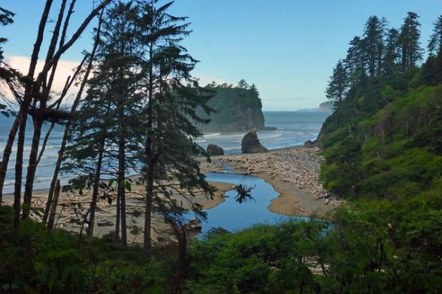Conservation Victories
Since our founding in 1906, The Mountaineers has played a role in nearly every major public lands campaign in Washington State’s history. Mountaineers have also been strong champions for landmark conservation policies, from the Wilderness Act to the Land and Water Conservation Fund. In most cases these campaigns lasted many years, and were successful thanks to the hard work and perseverance of countless stakeholders and advocates. The Mountaineers is proud of our contributions to these victories and what we’ve accomplished together with our partners. Read on to learn about our longtime journey of adventuring with purpose to protect the natural world and the outdoor experience across the Northwest and beyond.
Protecting Olympic National Park
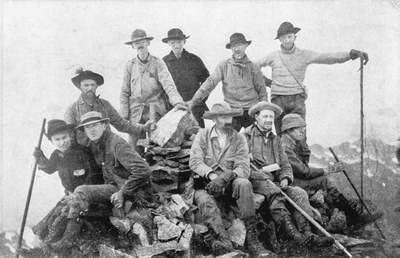 Protection of the forests, mountains, and coastlines of the Olympic Peninsula as a national park is one of The Mountaineers earliest conservation victories. Despite designation as a national monument in 1909, there was a need to oppose industry efforts to roll back those protections. Along with the Sierra Club and the Mazamas, The Mountaineers helped popularize the idea of wilderness preservation on the Olympic Coast through annual outings drawing thousands of people. Our advocacy helped shift public support away from commercial exploitation of the area, towards recreation and preservation, and establish the Park in 1938. We continue to build on this legacy by advocating for additional wilderness protections for the Olympic National Forest.
Protection of the forests, mountains, and coastlines of the Olympic Peninsula as a national park is one of The Mountaineers earliest conservation victories. Despite designation as a national monument in 1909, there was a need to oppose industry efforts to roll back those protections. Along with the Sierra Club and the Mazamas, The Mountaineers helped popularize the idea of wilderness preservation on the Olympic Coast through annual outings drawing thousands of people. Our advocacy helped shift public support away from commercial exploitation of the area, towards recreation and preservation, and establish the Park in 1938. We continue to build on this legacy by advocating for additional wilderness protections for the Olympic National Forest.
Creating Washington’s State Park System
Mountaineers played an instrumental role in the creation of Washington’s state park system, at a time in which there was great conflict over whether the state should manage areas for public use. In 1921, longtime Mountaineers Vice President Edward Allen helped persuade the Washington State Park Board to accept a donation of land on Orcas Island from early Mountaineer and former Seattle Mayor Robert Moran. Known today as Moran State Park, Washington’s first major state park led to the development of our state park system, which hosts many Mountaineers activities and programs each year.
Passing The Wilderness Act
Throughout the years, our members helped build a groundswell of support for bedrock federal conservation laws like The Wilderness Act of 1964. The Mountaineers helped organize a series of Northwest Wilderness Conferences that popularized the idea of designated Wilderness on the national stage. The passage of the Act in 1964 changed the national conservation landscape forever, and has helped protect many of Washington’s iconic landscapes, like the Glacier Peak Wilderness and the Alpine Lakes Wilderness. We continue to partner with groups like The Wilderness Society to advocate for additional wilderness protections across Washington.
Designating North Cascades National Park
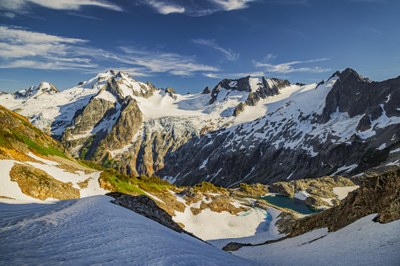 In 1968, The Mountaineers celebrated the creation of North Cascades National Park. One of The Mountaineers early publications, Harvey Manning’s The North Cascades, was a focal point of this effort. Our Everett Branch recommended the creation of a national park in the North Cascades in 1936, and led early efforts to increase public awareness of the idea. In the 1950s, Mountaineers partnered groups like the Sierra Club and the North Cascades Conservation Council to advocate for the park. Securing this important victory for the North Cascades has allowed Mountaineers and the broader recreation community to experience the magic of our local glaciers, alpine lakes, rivers, and beyond.
In 1968, The Mountaineers celebrated the creation of North Cascades National Park. One of The Mountaineers early publications, Harvey Manning’s The North Cascades, was a focal point of this effort. Our Everett Branch recommended the creation of a national park in the North Cascades in 1936, and led early efforts to increase public awareness of the idea. In the 1950s, Mountaineers partnered groups like the Sierra Club and the North Cascades Conservation Council to advocate for the park. Securing this important victory for the North Cascades has allowed Mountaineers and the broader recreation community to experience the magic of our local glaciers, alpine lakes, rivers, and beyond.
Preserving Alpine Lakes Wilderness
Mountaineers advocacy played a key role in preserving the Alpine Lakes area of the central Cascades as Wilderness. In 1976, we successfully advocated Congress to designate the Alpine Lakes Wilderness, including publishing the book that was instrumental to this success. Using the stunning photographs from The Alpine Lakes (1971), former Washington Governor Dan Evans convinced President Gerald Ford to protect the area as Wilderness. More recent Mountaineers advocacy led to new protections for the Alpine Lakes through expansion of the Wilderness Area in 2014. Given its close proximity to the Puget Sound region, the protected peaks, ridgelines, valleys, and watersheds of the Alpine Lakes allow many recreationists to experience Wilderness closer to home.
Opposing the Public Lands Heist
Mountaineers stood with the broader human-powered recreation community to oppose anti-public lands measures during the 115th and 116th Congresses. Known as the Public Lands Heist, this effort sought to weaken protections for our lands and waters and advance harmful policies that would open the door to privatization. While many of these public lands attacks were quashed, the changing political landscape in the House has Congress poised to advance a similar anti-public lands agenda in the 118th Congress.
Protecting the Methow Headwaters from Mining
We advocated for years to protect the Methow Valley from the threat of industrial-scale mining. This longtime campaign culminated in 2019 when Congress secured a permanent mineral withdrawal through the passage of the John D. Dingell, Jr. Conservation, Management, and Recreation Act. The headwaters of the Methow River, the surrounding valley, and the myriad outdoor recreation opportunities they support, are now permanently protected from the impacts of mineral extraction.
Designating the Mountains to Sound Greenway National Heritage Area
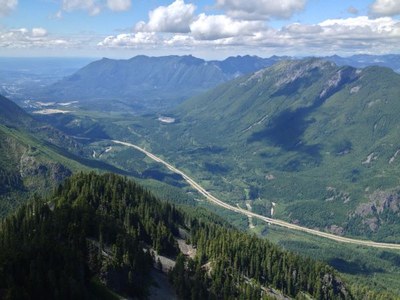 A focal area for Mountaineers adventures, the Mountains to Sound Greenway’s 1,600 miles of trails are home to many of the places we ski, hike, climb, and bike. Due to increased development, booming recreational use, and worsening impacts of the climate crisis, there’s a pressing need for land managers and stakeholders to better collaborate on efforts to protect the Greenway’s natural and cultural resources. In 2019, with over 5,000 of your voices, The Mountaineers joined partners to help secure the Greenway’s designation as a National Heritage Area through the passage of the John D. Dingell, Jr. Conservation, Management, and Recreation Act.
A focal area for Mountaineers adventures, the Mountains to Sound Greenway’s 1,600 miles of trails are home to many of the places we ski, hike, climb, and bike. Due to increased development, booming recreational use, and worsening impacts of the climate crisis, there’s a pressing need for land managers and stakeholders to better collaborate on efforts to protect the Greenway’s natural and cultural resources. In 2019, with over 5,000 of your voices, The Mountaineers joined partners to help secure the Greenway’s designation as a National Heritage Area through the passage of the John D. Dingell, Jr. Conservation, Management, and Recreation Act.
The Land and Water Conservation Fund
The Land and Water Conservation Fund (LWCF) is one of our most important federal conservation programs. This little known federal grant program is one of the most effective tools we have to conserve lands and waters, and improve outdoor recreation opportunities - many of the places we love to play would not exist without LWCF. Over the years, The Mountaineers have added our voice and flexed our advocacy muscles to secure permanent authorization of LWCF in 2019 and full and dedicated funding for the program through the passage of the Great American Outdoors Act 2020.
The Great American Outdoors Act
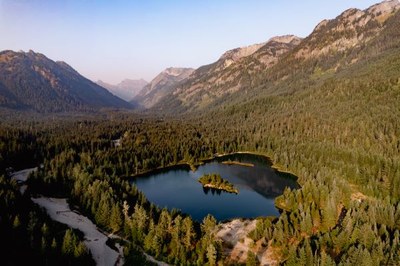 In 2020, the passage of the Great American Outdoors Act delivered a historic win for two of our longtime conservation priorities: full and permanent funding for the Land and Water Conservation Fund and new funding to maintain and restore federal parks and public lands. Thanks to our community’s advocacy, GAOA funding has already begun to make an impact on Washington’s public lands and waters by restoring trails and upgrading facilities. Moving forward, we’re excited to share more about Pacific Northwest GAOA projects and advocate for the program's reauthorization.
In 2020, the passage of the Great American Outdoors Act delivered a historic win for two of our longtime conservation priorities: full and permanent funding for the Land and Water Conservation Fund and new funding to maintain and restore federal parks and public lands. Thanks to our community’s advocacy, GAOA funding has already begun to make an impact on Washington’s public lands and waters by restoring trails and upgrading facilities. Moving forward, we’re excited to share more about Pacific Northwest GAOA projects and advocate for the program's reauthorization.
Restoring and Maintaining Washington’s State Parks and Recreation Areas
Increased visitation to Washington's 6.5 million acres of state public lands and lagging land manager funding have left campgrounds, trails, roads, and facilities in critical need of repairs and upgrades. In 2022, led by strong leadership from the Washington Trails Association, a coalition of organizations asked the legislature to begin tackling the $50-$75 million annual deferred maintenance backlog on state lands. Mountaineers advocacy helped secure $15 million in ongoing funding for Washington State Parks, Washington Department of Natural Resources, and the Washington Department of Fish and Wildlife. These resources are already making a difference to restore and maintain popular trails and lands near you.
Securing Bold Climate Investments through the Inflation Reduction Act
As recreationists, we’re increasingly experiencing the impacts of climate change in our communities and on our outdoor adventures. Our efforts to urge Congress to meaningfully invest in fighting the climate crisis secured a huge victory in 2022 with the passage of the Inflation Reduction Act (IRA). The IRA represents the largest effort to address the climate crisis in our nation’s history, and will leverage public lands as natural climate solutions. Mountaineers repeatedly raised their voices to share why addressing climate is so important to our community. One of the biggest ways the IRA will help address climate change is through various provisions and tax incentives for clean energy and emissions reductions. The Mountaineers and our partners will continue to advocate for IRA funding to be invested in public lands and climate action in Washington State.
Improving Recreation Management and Increasing Outdoor Access Through the EXPLORE Act
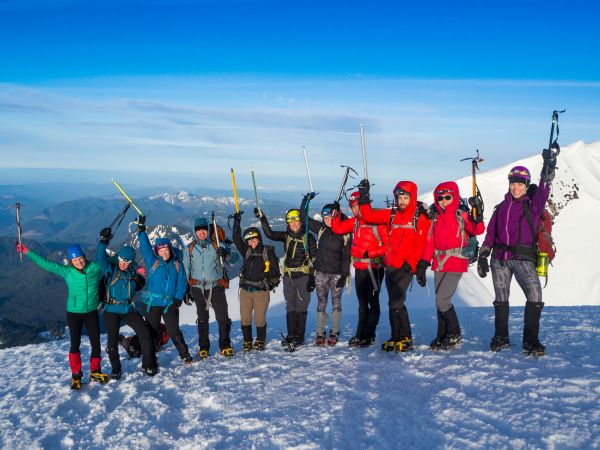 In 2024, we achieved a landmark victory a decade in the making for outdoor recreation management and access with the passage of the Expanding Public Lands Outdoor Recreation Experiences (EXPLORE) Act through Congress. Advocacy by The Mountaineers, our partners at the Coalition for Outdoor Access and Outdoor Alliance, and the human-powered recreation community was instrumental in making this first-of-its-kind recreation package a reality. EXPLORE will enhance recreation on federal public lands by improving the federal permitting system and reducing barriers to outdoor access through the SOAR Act and protecting the use of fixed anchors in wilderness climbing through the PARC Act. The law will also designate new long distance mountain biking trails, and improve access to nature and expand recreation opportunities for youth, traditionally marginalized communities, and veterans.
In 2024, we achieved a landmark victory a decade in the making for outdoor recreation management and access with the passage of the Expanding Public Lands Outdoor Recreation Experiences (EXPLORE) Act through Congress. Advocacy by The Mountaineers, our partners at the Coalition for Outdoor Access and Outdoor Alliance, and the human-powered recreation community was instrumental in making this first-of-its-kind recreation package a reality. EXPLORE will enhance recreation on federal public lands by improving the federal permitting system and reducing barriers to outdoor access through the SOAR Act and protecting the use of fixed anchors in wilderness climbing through the PARC Act. The law will also designate new long distance mountain biking trails, and improve access to nature and expand recreation opportunities for youth, traditionally marginalized communities, and veterans.
